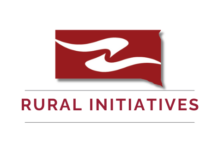
In a fast paced world, full of increasing information overload, many people find it difficult to find the time to think about their overall health and wellness. It is easy to take being healthy for granted and only seek treatment for our health “problems” verses giving thoughtful consideration to “being healthy”.
 Working collaboratively, the Robert Wood Johnson Foundation and the University of Wisconsin Population Health Institute recently released the annual county health rankings. The health rankings rate each county in the nation based on a set of 30 measures. As in all states, the South Dakota rankings show opportunities to build on successes and areas for improvement.
Working collaboratively, the Robert Wood Johnson Foundation and the University of Wisconsin Population Health Institute recently released the annual county health rankings. The health rankings rate each county in the nation based on a set of 30 measures. As in all states, the South Dakota rankings show opportunities to build on successes and areas for improvement.
These findings have a special significance for health care professionals and cause each of us to take pause and think more deeply about what it means to be “healthy”. In 1948, the World Health Organization defined health as: “Health is a state of complete physical, mental and social well-being and not merely the absence of disease or infirmity.” Now, more than ever, this perspective seems to resonate as we look to a healthier future.
But how do we, as communities, achieve “complete physical, mental and social well-being”? It is a challenging and aspirational task, one that requires coordinated efforts and bringing together the best aspects of the health care delivery system, people, technology and the entire community working together with a common purpose and goal… to improve the health and outcomes for all.
What can we learn from the county health rankings? A deeper look at the information reveals examples of what some communities have done to improve health outcomes. The process starts with completing a Community Health Needs Assessment (CHNA) to identify current trends, needs and opportunities for improvements and ongoing measurement. The CHNA helps communities assess needs and resources and provides guidance and other tools to assist with identifying targeted areas for improvement, sample policies and implementation examples. The Kaiser Permanente Foundation has developed a free toolkit that is a web-based platform designed to assist hospitals in completing a CHNA. The findings from a CHNA help outline the importance of physical environment, social and economic factors, clinical care and health behaviors.
As we look to the future of ensuring access to safe, high quality care and alternative delivery models for the care of illness and disease, more and more of our focus and energy must be on “advancing healthy communities”.






